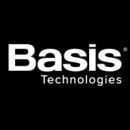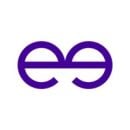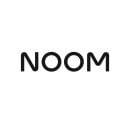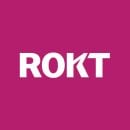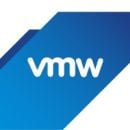You know what your company culture is like — you live and breathe it every single day. What’s challenging, however, is describing the unique relationships, behaviors and interests that make up your company’s culture to someone who isn’t part of it.
What Is Company Culture?
To help bring life to your culture, we’ve dissected some of the most frequently used words to describe company culture and rounded up 34 examples of culture statements.
Words to Describe Company Culture
Sometimes, top talent can be choosy about the type of company they want to join. For that reason, it’s crucial to describe your company culture in a way that’s both enticing and easy to understand. Plus, accurately describing your company culture will improve recruitment efforts by making it easier to identify candidates who are culture adds instead of culture fits.
You’ll want to choose descriptors that you can actually back up too. If your company-culture language doesn’t align with your work environment, you’ll confuse job seekers, appear disingenuous and may even lose great employees.
To help you out, we found 18 popular words used to describe company culture — along with what those words mean to job seekers.
See how your employer brand is performing in AI tools like ChatGPT and Google.
Adventurous
What this means to job seekers: This team takes risks and enjoys exploring new ideas. The company encourages creativity and bold pursuits that will help propel the business forward. In this role, I’ll be expected to contribute new, envelope-pushing ideas.
Agile
What this means to job seekers: This team is highly adaptive. They frequently reassess and redirect their course of action to adjust to the changing marketplace. This job will likely keep me on my toes and provide little structure at times. However, there will be opportunities to work outside of my job description.
Challenging
What this means to job seekers: This company culture will push me to work hard and perform well. There will likely be obstacles to my work that I’ll need to tackle head-on. Problem-solving isn’t an asset; it’s an expectation.
Collaborative
What this means to job seekers: I’ll be able to work with my colleagues often and in an informal, engaging way. Employees will be expected to bounce ideas off of each other and work well as part of a team. I won’t be siloed from the rest of the company, but I may need to ask for independent work if I want it.
Creative
What this means to job seekers: This company culture operates outside of the typical office structure. Employees are often working together and there’s an emphasis on brainstorming, feedback and innovation. Processes are more casual, but team projects are still results-oriented.
Daring
What this means to job seekers: This company is eager to push boundaries and test limits. They’re likely in their early stages where they can afford to take risks and may have less structure than other organizations. The company culture urges individuals to work hard and challenge the status quo.
Energetic
What this means to job seekers: This is a dynamic company culture where employees are eager to succeed. Individuals are motivated and have a lot of company pride; the work environment is vibrant.
Fast-Paced
What this means to job seekers: There’s no shortage of work to be done at this company. Employees are juggling multiple tasks at once and completing ad hoc projects regularly. The workday goes by quickly and no two days are exactly alike.
Flexible
What this means to job seekers: This company culture prioritizes work-life balance. The job offers remote work opportunities and/or flexible scheduling. I can tailor the role to fit my life outside of the office.
Friendly
What this means to job seekers: Employees are more than just coworkers. Individuals treat each other with respect and kindness, and the company culture encourages meaningful interactions between colleagues.
Inclusive
What this means to job seekers: The company prioritizes making employees from all walks of life feel welcome. Individuals are celebrated and everyone feels like they have a place at the company. Exclusionary behavior is not tolerated.
Innovative
What this means to job seekers: This company is actively growing and working to achieve the next big thing in its industry. Employees can be encouraged to be creative, share their ideas and think outside the box in their jobs.
Inspiring
What this means to job seekers: This company culture is closely tied to the organization’s mission. Leadership has a clear objective on how to make an impact in society and use it to motivate employees. Working in this role, I’ll be empowered by the company’s long-term objectives.
Passionate
What this means to job seekers: Employees are driven and go the extra mile. This company culture motivates team members to give their full selves to the job and invest in the company’s future. Individuals see value in their work and are eager to do well in their roles.
Playful
What this means to job seekers: This is a fun culture where team members don’t take themselves too seriously. The office is probably boisterous with regular social events, and employees interact with each other frequently.
Rewarding
What this means to job seekers: This company recognizes employee efforts and celebrates those that go above and beyond. Employees can be encouraged to root for their peers and feel that hard work pays off.
Stimulating
What this means to job seekers: This is a company culture that will encourage me to think deeply. There are lively conversations happening and lots to be learned. I will be expected to grow in my role and help the team evolve.
Transparent
What this means to job seekers: This company places transparency and communication at the heart of its operations. Employees at all levels are welcome to be open, honest and provide feedback without fearing judgment.
How to Describe Company Culture
Let’s take a step back and discuss how to accurately describe your company culture.
1. Lean On Your Core Values
To start, refer back to your company’s core values. These are the driving force behind your culture and dictate how you treat employees, clients and generally do business. Additionally, your core values should describe the working style in the office. For example, as a company that values innovation, you might work to create a collaborative culture where employees are encouraged to share ideas with one another.
2. Incorporate Your Mission Statement
You’ll also want to think about your company mission statement when describing your workplace culture. What is the overarching goal of your company, and how do you envision achieving it? Who is your target audience made up of, and how will you make an impact in society? Let’s say your company aims to be on the cutting edge of the e-commerce technology sector — you’ll want to create a daring company culture that encourages risk-taking. Your mission statement should give meaning to your core values and infuse your company culture with purpose.
3. Consider Your Employees
Think of your current employees and how you would describe them. Organizational culture is a living, breathing facet of your company, and it’s largely the result of the people on your team. While you can successfully change your company culture, you can’t do so without the buy-in of your existing team members. Think of how they interact with one another, how they like to receive feedback and the characteristics that make your team unique.
Examine these three elements before setting out to describe your work environment. Doing so will paint a picture of honesty and appeal for prospective candidates. Do not use language that inaccurately reflects the company culture you’ve created. If candidates accept a job thinking they’re joining a collaborative environment when in reality they rarely interact with their coworkers, they’ll quickly seek work elsewhere. In fact, employees not liking their company’s culture is far more telling than compensation when predicting employee turnover.
Examples of Company Culture Statements
Drafting a culture statement for your company is like writing a thesis; it needs to be succinct and all-encompassing. Think carefully about the type of organizational culture you aim to create and the candidates you hope to attract.
Keep in mind that every culture reflects the specific people, mission and values of an organization that coincide with geographical and local cultural nuances. Use these examples to brainstorm and assign words to the living, changing organism that is your company’s culture.
How Array describes its culture:
“At Array, we provide innovative financial, identity, and privacy protection tools to our clients and their customers. We’re laser-focused on making a positive impact on financial progress, and are looking for ambitious, team-oriented, and customer-focused individuals who are driven by high standards to join us on this journey.”
How Bevi describes its culture:
“Our shared values: Doing what we do at Bevi means living by a special set of ideals and beliefs.
1. Put customers first
Go beyond just satisfying them. Deliver on what they want, before they even know it.
2. Be great to work with
Some roles come with more responsibility than others, but all roles come with equal respect.
3. Raise the bar together
Learn from the losses. Celebrate the wins. Do it all together.
4. Act like you own the business
Make decisions like you’re running the place, and then make the place even better.
5. Be curious and ask why
Question the status quo. Encourage different ideas, and welcome challenges to your own.
6. Champion sustainability
The power to save the planet comes from the power of your example.”
How Basis Technologies describes its culture:
“We are looking for amazing people diverse in thought, perspective, and culture to join our team. We check our egos at the door, roll up our sleeves, work hard, move fast, and support each other. If that sounds like fun to you, please get in touch.”
How Compass describes its culture:
“At Compass, we believe that everyone deserves to find their place in the world—a place where they feel like they belong, where they can be their authentic selves, and where they can thrive. To work towards this mission, we prioritize diversity and believe in a culture rooted in collaboration, growth, and mobility.”
How cove describes its culture:
“At cove, we want to be great — create great products, create a great solution for real estate and property management, and to be great contributors to our community.
This begins with great teammates, making cove a great place to work, and encouraging our team to learn and grow to help make us better. When you work at cove, you are joining a multi-disciplinary team, passionate about solving problems through technology, design, real estate strategy, and incredible experiences.”
How DoiT International describes its culture:
“At DoiT, we believe what sets us apart is You, our Do’ers. We are an organization where everyone is welcome and where everyone is respected for the unique perspective and experience they bring as individuals to enhance our team. We are committed to providing an experience that is inclusive, equitable and kind. We may be spread across the globe as a remote-first company, but we are and always will be One Team.”
How FORM describes its culture:
“We are engineers, visionaries, data hounds, number crunchers, relationship builders, and storytellers helping field workers become frontline heroes.”
How Formstack describes its culture:
“Formstack offers more than just a job. We provide a community where you can learn, grow, and thrive your way. Explore Formstack careers and join a dynamic, remote-first team that values relationships as much as results.”
How Forward Financing describes its culture:
“We’re a fun, collaborative group that rallies around our dedication to empowering small businesses. From our amazing workspace to our accessible leadership team and unparalleled culture, Forward is a pretty special place to be.”
How FreeWheel describes its culture:
“FreeWheel is an industry leader built on a culture of creativity, ingenuity, and inclusion. We welcome big ideas, give you space to grow, and offer the support you need.”
How HubSpot describes its culture:
“There’s no inner circle: Everyone from the C-suite to interns share information, knowledge, and ideas. Being radically transparent helps us all think like founders, and stay focused on solving for our customers.
Everyone’s empowered to work autonomously: We trust amazing people to do amazing things. At HubSpot, you have ownership over work that directly impacts the business. You can move fast, and learn even faster.
Diverse perspectives are celebrated: We believe different perspectives make HubSpot a better company. We work hard to build a diverse and inclusive environment where you feel you belong. We are committed to providing reasonable accommodations throughout the application and interview process.
Employees are treated like people, not line items: Employees are whole people, with families, hobbies, and lives outside of work. We work remotely, keep non-traditional hours, and use unlimited vacation to create work-life ‘fit’ for us and the people we love.”
How Live Nation describes its culture:
“We live for ideas: Part of working in a creative industry is imagining what could be and exploring the possibilities. We encourage everyone at Live Nation to dream big and email our CEO with ideas to move our business forward.
We live for entrepreneurship: Employees who thrive here are self-starters who are experts at what they do. While we give a tremendous amount of independence to our employees, we are also precise and exacting about performance. There is no hiding behind process here. You are evaluated on your results and concrete contributions to our business.
We live for talent: We believe talent comes from any place or background. This is not a place for elitists. We hire people for who they are – hard workers who deliver results and are passionate about what they do.”
How LogicMonitor describes its culture:
“We operate as #OneTeam, and we believe that every individual has equal value in this world. We treasure the power of human differences and recognize that building a culture of respect, diversity, equality, and inclusion is an essential part of our workplace and company.”
How NetApp describes its culture:
“We have a history of making our own rules — in a good way. That’s because we approach every challenge with fresh eyes. As a result, you’ll find no cookie cutters in our kit — but we do like cookies. Customers say we push the limits above and beyond what they thought could ever be possible. It’s a testament to our diversity, openness, and collaboration.”
How Noom describes its culture:
“We encourage you to voice your ideas and develop your own experiments so we can quickly test those ideas to implement the highest performers. Our appetite for fast learning shapes more than just our processes and products, it also shapes our culture and allows for substantial progress in short periods of time.
We believe our success is directly tied to your development. Have an eye on a book? Buy it. Want to attend a seminar? Sign up. Interested in a mentor? We’ll pay for their time. Noom is here to empower every aspect of your growth.”
How Pax8 describes its culture:
“Innovate: Finding creative solutions means challenging the status quo and embracing diverse thoughts and experiences to fuel new ideas.
Elevate: We lift others, ourselves, and our work through a supportive culture and continual investment in our knowledge and skills.
Advocate: Praise is openly given, shared, and received, ensuring everyone’s contributions are seen and recognized.
Celebrate: We celebrate team members’ unique backgrounds, experiences, and skills, knowing their knowledge and insight enable us to constantly evolve.”
How Prodege LLC describes its culture:
“Why work with us? Our employees are passionate, creative, diverse and driven to help rethink the way consumers engage with brands. We’re looking for creative and collaborative self-starters that have a thirst for learning and sharing their knowledge and know how to have fun while doing so. In return, our employees are rewarded, recognized and celebrated!”
How Rapid7 describes its culture:
“At Rapid7, we celebrate people bringing diverse perspectives to the table as we work together to help create a secure digital future for everyone. Diversity of backgrounds and mindsets help us close gaps in experience and spark innovation. A deep commitment to Diversity, Equity & Inclusion is core to the strength and success of our business. It empowers our communities, makes our company healthier, and makes our customers more secure. It’s also, quite simply, the right thing to do. Not just for us, but for the advancement of our industry and our world. This is why we are building a place where everyone feels welcome to be their authentic selves.”
How RingCentral describes its culture:
“Our culture is the cornerstone of our success — dynamic, eclectic, and completely devoted to helping everyone bring their whole selves to work. We consistently earn ‘Best Place to Work’ awards in markets around the world because we strive every day to make RingCentral a place where everyone can truly be their best selves — with the freedom to take initiative, question the status quo, break down barriers and empower businesses to collaborate more effectively than ever before.”
How RevenueCat describes its culture:
“We default to transparency. We record leadership meetings for all team members to view. Board meeting decks and investor updates are shared with the entire company. We document everything and don’t rely on oral tradition to retain important knowledge. We believe that people can do their best work when they have full context.”
How Rokt describes its culture:
“We are a mission-driven, hyper-growth community of curious explorers, intent on unleashing the potential of ecommerce. We are not afraid to venture into uncharted territories, take risks or challenge the status quo; in doing so we either learn or win. We work together as one single aligned team. We value diversity, transparency and smart humble people who enjoy building a disruptive business. We pride ourselves on being a force for good and work towards unleashing potential to make the world simpler and fairer.”
How Sprout Social describes its culture:
“Focused on what’s most important: Acting with purpose and focus is our secret sauce. Whether it’s during our company-wide focus days, or daily focus time, we prioritize solving the most meaningful problems first—and say ‘no’ or ‘not now’ to everything else.
Support at every level: Driven and united by our shared goals, you see much more collaboration at Sprout than folks are used to. Across the entire org, team members are uncommonly helpful, supportive and transparent, offering an open-door policy—even in the C-suite.
Freedom to be human: Need a day off for your mental health? Take it. Need to go camera-off because, toddlers? Do it. Sprout’s flexibility goes beyond permission—we accept and empower folks to be people, first.”
How Tebra describes its culture:
“Diversity, Equity, and Inclusion are at the core of our success at Tebra. We foster an environment that welcomes diversity of thought, perspective, and lived experiences. We want everyone to feel valued and respected, and be able to bring their whole, authentic self to Tebra. This helps us cultivate our innovation and creativity when solving challenges for our customers and understanding the communities we serve. From employee resource groups to community partnerships, Tebrans take an active role in creating and amplifying DE&I in all that we do.”
How Workday describes its culture:
“Everyone belongs here: The collective uniqueness of our Workmates is what makes us shine. We value inclusion, belonging, and equity for all.
Brighter days for all start from within: ‘Employees first’ isn’t just a mantra for us, but a way of life. We’re our Workmates’ biggest fans. We support each other and win together collectively.
Flexibility to balance work and life: With Flex Work, we’re combining the best of both worlds: in-person time and remote. Our approach enables our teams to deepen connections, maintain a strong community, and do their best work.
We value your opinion: Our Workmates are encouraged to voice their opinions. We’ll listen to your feedback and incorporate your suggestions to make Workday an even better workplace—inspiring our team to create even better solutions.”
How Almanac describes its culture:
“Work from anywhere in the world (with good wifi). We prioritize time for deep work weekly and only have meetings when we have to. So you can work around your life—not live around your work.”
How BlackCloak describes its culture:
“Respect all with humility and patience. Empathize with others and invest in their success. Innovate with speed, passion, and curiosity. Act as an owner, doer, and as one team. Delight beyond expectations.”
How Braintree describes its culture:
“At Braintree, opportunities to shine happen daily. We value what makes you different, and encourage you to act on your ideas — no matter how pie-in-the-sky. You bring skills and a customer-first mentality, and we’ll bring the tools and environment you need to do the best work of your life.”
How Clearcover describes its culture:
“Clearcover-ers earn trust through their words and actions. We listen attentively, treat others respectfully and always act with empathy and integrity. We are vocally self-critical, even when doing so is awkward or embarrassing. We know how to disagree and commit and are generous with appreciation and praise when it’s due.”
How Etsy describes its culture:
“Etsy is the global marketplace for unique and creative goods. It’s home to a universe of special, extraordinary items, from unique handcrafted pieces to vintage treasures.
In a time of increasing automation, it’s our mission to keep human connection at the heart of commerce. That’s why we built a place where creativity lives and thrives because it’s powered by people. We help our community of sellers turn their ideas into successful businesses. Our platform connects them with millions of buyers looking for an alternative—something special with a human touch, for those moments in life that deserve imagination.
As a company, we strive to lead with our guiding principles and to help spread ideas of sustainability and responsibility whose impact can reach far beyond our own business.”
How Greenhouse Software describes its culture:
“We believe human potential is the most powerful force for progress and success we have. Building a culture of belonging that puts people first – where every person is supported to bring their most authentic self to work – is how we unlock it and enable our people to do the best work of their life.”
How SDI Presence describes its culture:
“Our reputation as a leading Managed Services Provider and IT Consultancy hinges on the quality of our people. Our culture is inclusive, diverse and unique in its own way. We are all passionate about our individual set of skills that collectively come together to form a multi-dimensional presence. From our diverse workforce to our team-building programs, we strive to maintain an open and friendly culture for everyone.”
How UiPath describes its culture:
“We support the open and respectful exchange of ideas–from both within and outside of the company. We do not hide from our own failures or scorn the failures of others. We trust each other: to own our work, to always seek excellence, to reach beyond our past achievements. We believe in creating a safe, generous, accepting workplace where people can be their authentic, best selves. We are a meritocracy. We wholeheartedly share what we know —not just with each other, but with anyone who wants to explore and contribute. We prize introspection and action equally. We believe in our technology and its potential to accelerate human achievement.”
How Unacast describes its culture:
“Work like a Norwegian: We couldn’t fit the whole of New York into tiny Norway - our original home - so we brought Norway to New York, and the broader US. What does that mean? It means we work differently. Sometimes it doesn’t feel like work at all! Norway is certified as one of the happiest countries in the world so we know that how we treat each other personally and professionally matters. We believe that more trust + more autonomy + more humanity = more success.”
How VMware describes its culture:
“When you work here, you’re connected to a global community working together to solve the most critical technology challenges. You’re surrounded by a culture of possibility, where ideas ripple out and have a positive impact on communities everywhere.”
Frequently Asked Questions
What words best describe company culture?
Companies can make a lasting impression on potential job candidates by using positive words to describe their company culture. Innovative, inclusive and transparent are a few adjectives that showcase the upsides of joining a workplace.
What is a company culture statement?
A company culture statement explains the main aspects of what is considered an organization’s ‘culture’ — core values, mission statement, a code of ethics and other materials that guide the behavior and practices of individuals within a company.




